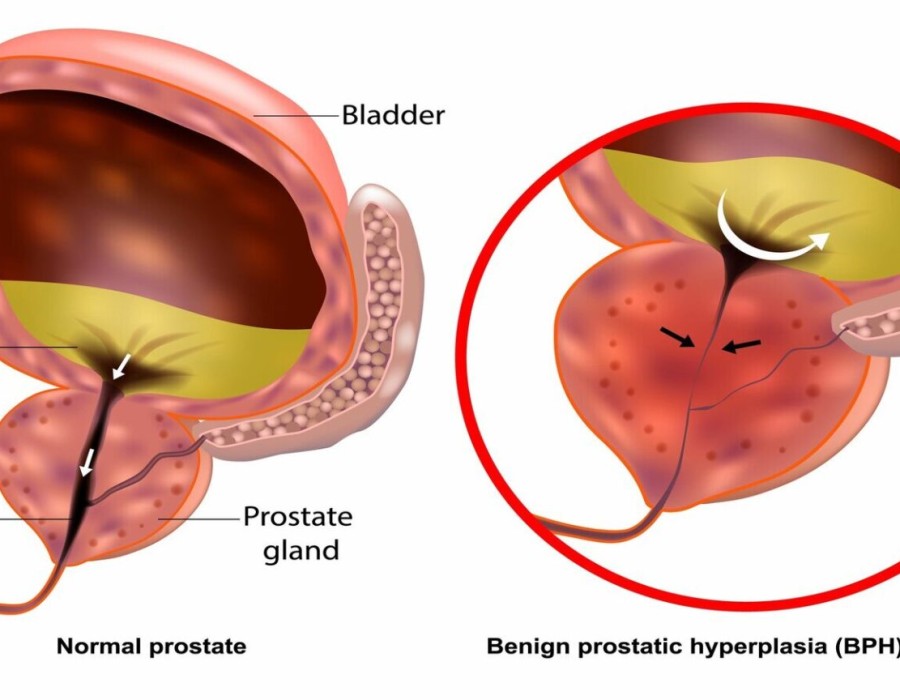An enlarged prostate, also known as benign prostatic hyperplasia (BPH), is a common condition among aging men. As the prostate gland enlarges, it can cause various symptoms that affect urination and overall quality of life.
Here are some of the most common symptoms associated with an enlarged prostate:
- Frequent or Urgent Urination: Men with BPH often experience a frequent need to urinate, especially at night (nocturia). This urgency can disrupt sleep patterns and daily activities.
- Difficulty Starting Urination: A noticeable delay or difficulty in initiating urination is a classic symptom of an enlarged prostate. This may be accompanied by straining or pushing to begin urination.
- Weak Urine Stream: As the prostate gland presses against the urethra (the tube that carries urine from the bladder), it can obstruct the flow of urine, leading to a weaker stream or intermittent flow.
- Incomplete Emptying of the Bladder: Men may feel that their bladder is not completely empty after urination. This sensation can lead to a persistent feeling of needing to urinate shortly after finishing.
- Urinary Retention: In severe cases, BPH can cause urinary retention, where the bladder is unable to empty fully. This can be painful and may require medical intervention to relieve.
- Urinary Tract Infections (UTIs): Stagnant urine in the bladder due to incomplete emptying can increase the risk of developing urinary tract infections. Symptoms of UTIs include burning sensation during urination, cloudy or foul-smelling urine, and pelvic pain.
- Blood in the Urine: Sometimes, BPH can lead to blood in the urine (hematuria). This may appear as pink, red, or cola-colored urine, indicating potential complications such as inflammation or infection.
- Bladder Stones: In rare cases, urinary retention associated with BPH can lead to the formation of bladder stones. These can cause additional pain and discomfort during urination.
It’s important to note that the severity and combination of symptoms can vary widely among individuals with an enlarged prostate Treatment in Jaipur. Some men may experience mild symptoms that do not significantly impact their daily lives, while others may have more pronounced symptoms that require medical attention.
If you experience any of these symptoms or suspect you may have an enlarged prostate, it is advisable to consult a healthcare provider. Early diagnosis and appropriate management can help alleviate symptoms and prevent complications associated with BPH. Treatment options range from lifestyle changes and medications to surgical interventions, depending on the severity of symptoms and individual health factors. Regular check-ups and open communication with a healthcare provider are essential for managing prostate health effectively.






Comments